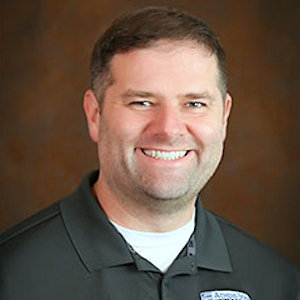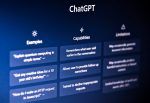Mark Gale & Joy Oettel – ActiveFlex: Courses that Adapt to Your Life and Schedule
Flexibility and student success in a world full of unknowns is what was promised when HyFlex was mentioned as a tool against COVID-19 shutdowns during the early months of the pandemic. Hence, a handful of faculty and staff were tasked with piloting a HyFlex initiative in response to COVID-19. Three out of five courses ended with less than desirable results. Yet, two resulted in high marks. Building off of these successful courses, we developed a highly engaging, flexible format that has significantly improved online education for our students. Discover the emergence of ActiveFlex, an enhancement of the HyFlex concept with emphasis placed on equal engagement, active learning, and instructor / peer interaction for all modalities.
COVID-19 disrupted the way we traditionally teach and interact with students. This disruption led to increased interest in the HyFlex course format. As many universities did, we attempted a pilot program in the Fall 2020 semester with a set of HyFlex courses that resulted in underwhelming, mixed results. However, the core tenets of HyFlex – allowing students to choose how to attend classes on a lesson by lesson / module by module seemed sound. With this philosophy in mind and a few courses being deemed successful in the pilot, we reinvestigated the possibilities of HyFlex to see if we could create a system that was more universally beneficial to students and faculty. From this, ActiveFlex was formed.
In theory, traditional HyFlex classes allow for students to choose their mode of attendance – live in person, synchronous online, or asynchronous online – each week or so of the course. If a student can attend live in person one week, they are still welcome to opt for asynchronous online the next week. The choice of attendance is up to the student. However, in many of our pilot classes and in talking with colleagues who have attempt HyFlex in the past, this flexibility comes at a cost. Traditional classes have a sense of engagement and active learning built in them that is hard to mimic in the asynchronous and online synchronous environment. This may be one reason that many times our asynchronous classes at the university surveyed lower in student satisfaction than our traditional courses. This problem also occurred in some of the pilot classes where not as much attention was given to the asynchronous portion of the course and it looked to be “thrown together”. A similar problem was found in some of the courses where the live portion of the course relied mostly on lecture and had very little peer-to-peer and peer-to-instructor interaction. In these scenarios, the live course attendance dropped as students moved to watching the videos asynchronously where they could watch the video at faster speeds. This led to frustration with the instructors as they didn’t want to teach to an “empty room”.
The ActiveFlex format was developed to overcome these problems. To combat the problem of equality in modality, ActiveFlex courses are built where each course session includes a live lecture and a reinforcement activity. The lecture is pre-recorded for asynchronous students and delivered live for those that attend synchronously online or traditionally in the classroom. The same aids and materials are covered in the pre-recorded video and the live lecture to ensure that the major concepts are covered in both formats. To make sure the time on task is equivalent for live and asynchronous students, the latter are given a template to complete related to the lecture video.
The second part of the session is the reinforcement activity, which provides the immediate application of the content information learned. This activity can be completed individually, but when attending live, students are broken into groups to complete it. To keep things balanced, students attending in-person are grouped with students attending live online. After students complete the group work, they are brought back to the main room to participate in a larger discussion of the activity with the instructor and fellow classmates.
Following the discussion, live group students are encouraged to share the results of the class after the live class is over and asynchronous students are encouraged to share by the assignment due date so that both groups of students benefit from the material built.
This application of active learning and interaction via peer-to-peer work has been effective in encouraging students to come to class rather than doing it on their own asynchronously. This helps counter the second problem of our HyFlex pilot courses where students switched to primarily the asynchronous modality for faster viewing of the lectures.
In our presentation, we will demonstrate the award-winning ActiveFlex model as a unique blend of innovation, flexibility, active learning, advanced use of LMS features, technology, and instructional strategies that allow successful flexibility in an ever-changing world. The result is an online format that has greatly benefited faculty and students by providing a version of quality online learning that will continue to strengthen the landscape of online education.
Mark Gale, Associate Professor of Instructional Design, Athens State University. LinkedIn
Joy Oettel, Instructional Designer/Multimedia Specialist, Athens State University.Tracks: Online Instructional Designers, Online Faculty, Online Admin/Leadership, Online Student Support
DAY 2: Thursday, March 9, 2023
4:45AM – 5:45AM










